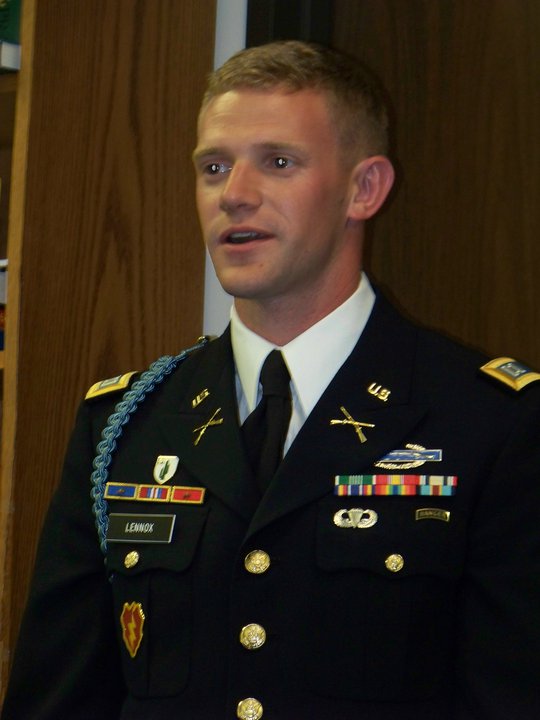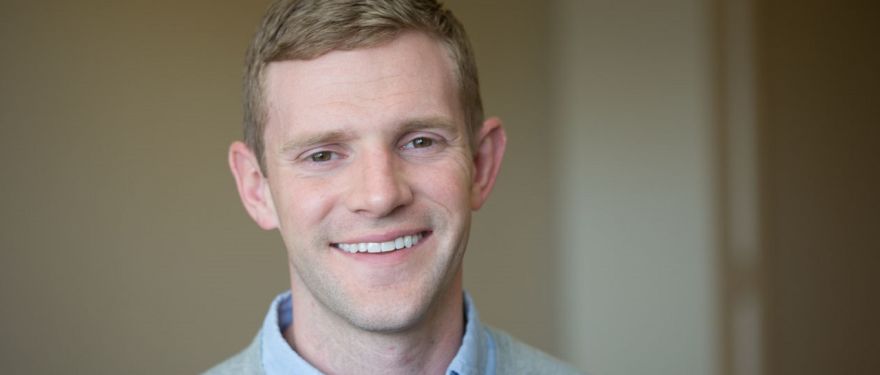Exposed to new functions and industries through case studies, classmates, and the resources of our Career and Professional Development (CPD) Office, nearly 70% of HBS students will pursue ventures very different from the ones that led them to HBS.
Dan Lennox-Choate is no exception. He joined the Class of 2015 after serving for six years as an Infantry Officer in the U.S. Army and working in Afghanistan as an aide-de-camp in NATO’s anticorruption task force. Dan spent much of his time at HBS exploring different industries, and he will be transitioning to consulting after graduation.
What are you planning to do after HBS?
After HBS I will work as a management consultant at Bain & Company in New York. I knew I wanted to move into the private sector, and consulting is a great way to gain insight into a wide variety of industries and gain analytical skills 
that will serve me well in the long term.
Did you come to HBS with the plan to go into a different career after graduation?
I left the Army before coming to HBS, and I was sure I wanted to move to the private sector, although I wasn’t exactly sure what I wanted to do. I quickly learned more about consulting by interacting with classmates, speaking with second year students in the Armed Forces Alumni Association, and through career coaches. I focused my attention exclusively on consulting during the recruiting process.
Why do you think so many people pivot their careers after business school?
I think most people use HBS as an opportunity to try something new. If they had not decided on a new path before they came to HBS, there is lots of time for reflection built into the MBA curriculum.
How can students get to know about different industries and job functions at HBS?
Coming from the military, I learned about different industries and job functions from my classmates, by asking about their experiences. The case method and the structure of the MBA program, which has a diverse core curriculum, allows you to examine many different industries in class as well. Baker Library has excellent online resources that allow you to follow the latest industry news, and CPD has outstanding resources, including career coaches who have a wide variety of backgrounds.
How have you utilized the CPD resources available to you?
Early on, I met with a career coach to review my self-assessment and discuss how I could approach the recruiting process. We continued to meet throughout the recruiting process to discuss networking strategies, review cover letters, and to reflect on feedback I had received. After I received my internship offer, we met to discuss how I could prepare to contribute throughout the summer.
How did your summer internship experience impact your future plans?
I spent my summer at Bain & Company. It was a great opportunity to learn more about consulting, how consulting teams work, and to test if I would like the job. I enjoyed the job and loved my team, so I was excited when I received an offer to return to Bain & Co after graduation.
Has the alumni network impacted your job search?
I found the alumni network to be very supportive throughout my job search. I sought advice from alumni who shared my background, especially veterans who transitioned to consulting, or LGBT individuals. I found that this extra level of connection served as a great point of departure for our conversations.
What’s your best advice to someone coming to HBS who is considering a career change?
My advice is to take all time you need to prepare before recruiting. Use all the resources you have, from the Career Teams workshop run by CPD to the self-assessment you undergo before HBS. By leveraging all these resources and allowing a lot of time for reflection, you can ensure that your summer is not just another job, but an experience that you value, and potentially sets you on a great trajectory going forward.

